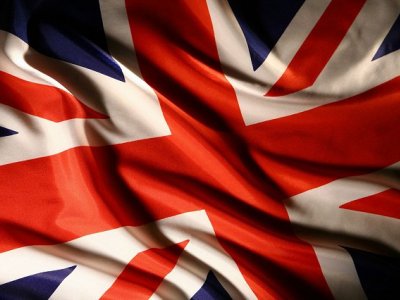
ONE NATION UNDER GOD?
As Britain slowly unpicks the threads that once wove it together, where does Christianity now belong?
An EU ruling in April 2014 that Cornwall is recognised as a national minority has been heralded by the Cornish and provoked some sniggers across the nation from other counties with equally proud, if less distinctive, traditions. Coming in the year of Scotland’s independence vote it raises further questions of what it means to be British.
We have come a long way in a lifetime. The generation that fought for Churchill and voted for Atlee was bound together in the trauma of war and the creation of the Welfare State. The long subsequent peace and emerging social and economic liberalism have untied the knots which bound us together to create a more individually minded population. It has been said that there are sixty million ways of being British now. Well, perhaps. Surely some things must bind us together?
Britain’s unusual multi-national state has survived many threats and challenges but there are signs that it will soon divide out of choice. Devolution in 1997 for both Scotland and Wales were meant by the Labour government both to answer the call for greater autonomy while preserving us from more. In fact it has led to stronger claims from Scotland for independence. Even a ‘no’ vote in September 2014 is only likely to be another staging post on the way to the break-up of the Union, given the impetus the Scottish National Party has found.
Other factors are altering the way we understand Britain. The debates over multiculturalism continue unabated. How, and to what extent, should an immigrant coming to Britain integrate into the national culture? The academic emphasis of the 1980s, that cultures should be able to develop separately and unimpeded by majority customs, remains a strong current in British life but one that most feel a greater intolerance for when it seems to threaten rather than enrich our common life. While few would subscribe to the Tebbit test that an immigrant should be willing to support the England cricket team against their country of origin - seriously, which English person moving down under would instinctively support the Aussies - most feel there are certain commitments to Britain that should both inhere and evolve in immigrant communities.
The Canadian political philosopher, Michael Ignatieff, has suggested there are two basic kinds of nationalism: ethnic and civic. It is the former kind that has caused tragedy in Europe over the last generation and therefore the latter kind to which we should aspire. Despite the horrors of ethnic cleansing, it would be wrong to dismiss an expression of ethnic nationalism per se. As a new generation of Britons emerges, we see evidence of many peoples cohering round a gentler form of ethnic nationalism.
The presence of civic nationalism affords greater space for immigrant communities to belong, as they learn to cherish the institutions and systems which make Britain what it is. The expectation that such communities show their loyalty to Britain’s civic life sits uneasily with the careless and growing cynicism among long-established citizens towards these very institutions. If we do not take them seriously and work for their betterment, why should anyone else?
When David Cameron claimed Britain was a Christian country in 2014, he met with a predictable assault from the vocal humanist lobby which does not tolerate public expressions of faith and would prefer to relegate it forcefully to the private sphere of home and family. Britain is not notably confessional in its embrace of Christianity any more, but its history and traditions are replete with it. There is a third kind of nationalism which one might call customary, which concerns the rituals, practices, instincts and values of a society. In Britain this contains a sonic Christian frequency which endures but which those who cannot hear it choose to deny.
As Britain evolves and the English in particular learn to think more intentionally about themselves, this Christian frequency will provide a surer, kinder and more inclusive framework for public life than the secular one some would like us to have. Among the immigrant communities settling in Britain, many bring a Christian faith with them, which is a cause of rejoicing for the Church. Those who bring another faith tend to prefer Britain to be a Christian than a secular nation, for this affords the kind of dignity and space to the expression of faith that humanists would extinguish.
POPULAR ARTICLES

Obama's Covert Wars
The use of drones is going to change warfare out of all recognition in the next decades.

Through A Glass Starkly
Images of traumatic incidents caught on mobile phone can be put to remarkable effect.

What Are British Values?
Is there a British identity and if so, what has shaped the values and institutions that form it?


